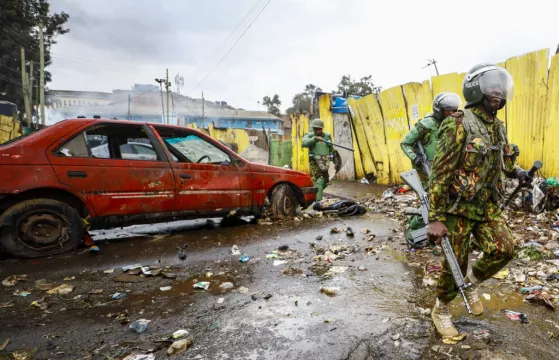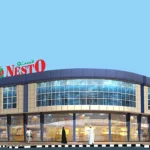Two people were killed during protests against Kenya’s government as police opened fire on demonstrators opposing rising living costs and tax increases.
Demonstrators threw rocks at police and burned tires on Wednesday during anti-government demonstrations organized by the opposition this month, while security forces fired teargas to control crowds. Kisumu, Kenya — According to George Rae, CEO of Jaramogi Oginga Odinga Hospital — two people died due to clashes between police and protesters in Kisumu during protests, which George noted are an opposition bastion.
“Two bodies were recorded at the morgue with gunshot wounds,” he reported via telephone to AFP, adding that 14 others had been hospitalized. Alvin Sikuku, a health records worker in Nairobi’s Kangemi neighborhood, told AP that two injured men were brought in for medical attention at Eagle Nursing Home clinic – both shot with live bullets by police officers.
One man was shot in the back, severely wounded, while the other was struck in his leg. Police arrested at least 300 individuals nationwide, including nine senior opposition figures, according to the interior ministry and an opposition lawyer.
Schools were closed across Kenya’s three largest cities: Nairobi, Mombasa, and Kisumu – as schools remain shut across Africa during a national school strike. Nairobi city center appeared deserted, with many businesses closed down while police set up checkpoints on roads leading up to State House – President William Ruto’s official residence. Ruto won the election last August, pledging his commitment to protecting the poor. Still, essential commodities have increased in price under his administration while his government recently approved tax hikes.
The government asserts that fuel and housing levies are necessary to address debt repayment needs and fund job-creation initiatives. According to the interior ministry, these individuals will be charged with looting, malicious damage, and arson. Citizen TV reported that two individuals from Migori town in western Kenya sought medical attention for gunshot wounds they sustained while protesting, Citizen TV said.
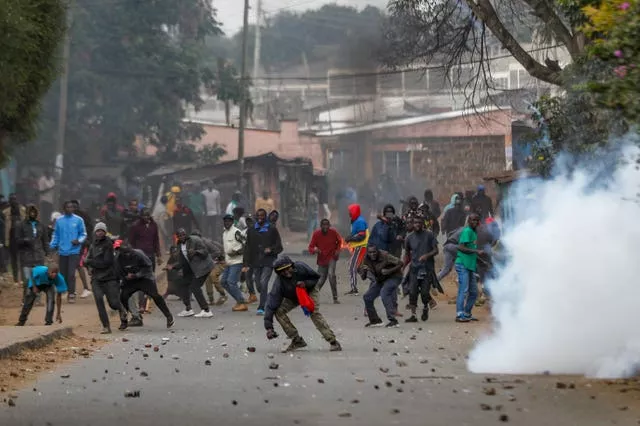
“This government is violating our constitution by being harsh on us while we try to uphold it through peaceful protests,” Eric, one of Mombasa’s protesters, told Reuters as he splashed water over his face to wash away teargas particles that had entered. Two water cannon trucks and dozens of riot police were deployed at the entrance to Kibera, a shantytown in southwestern Nairobi. Protesters burned tires and threw rocks at police, who responded with teargas canisters. Azimio La Umoja’s opposition party announced via their TV station that Raila Odinga, spokesperson for their leader, had been arrested. Opposition leaders have also called for demonstrations on Thursday and Friday.
A private sector lobby group reports that protests this year have cost the economy over $20m daily in disruptions due to protests. At the same time, civic leaders have warned about reports of ethnic-based violence incidents.
Tribal alliances often define Kenyan politics, and numerous people were killed due to fighting along ethnic lines following contentious elections in 2007 and 2017. Political analysts agree that Ruto has comprehensive support across ethnicities, making the protests unlikely to escalate into widespread ethnic violence.
Churches and civil rights groups have called upon Ruto and Odinga to settle their differences through dialogue rather than protests, with Archbishop Anthony Muheria of Kenya Conference of Catholic Bishops calling for repealing tax increases.
Kenya has long been marked by political unrest, with demonstrations and protests often sparking from various socio-economic and political issues. Recently, anti-government demonstrations in Kenya have been spurred by concerns over rising cost-of-living expenses and tax hikes implemented by their government – leading to widespread discontent from ordinary citizens as essential commodities become less affordable due to rising taxes; calls for peaceful dialogue have proven fruitless as violent clashes between protesters and security forces continue.
Reasons and Impact of Tax Increases
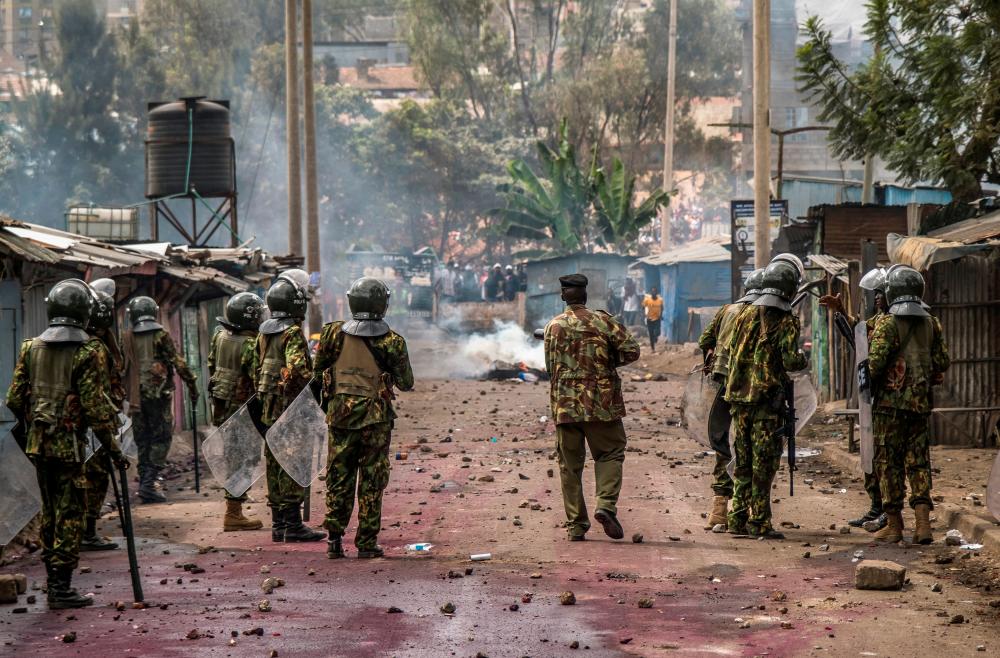
Kenya’s rationale for raising taxes was to address mounting debt repayments and finance job-creation initiatives. Still, its effects have fallen disproportionately on ordinary Kenyan citizens, particularly those struggling with poverty. Fuel and housing cost increases caused by these tax measures have made life increasingly challenging for many Kenyan households, further fuelling public discontent that remains unfulfilled despite election pledges of improvement for poor Kenyans.
Protester Demands and Government Response
Protesters supported by an opposition party have demanded that the government repeal tax increases and take concrete steps to ease economic hardships for its population. Yet despite mounting pressure, officials remain unwilling to make significant concessions, instead opting for heavy-handed methods of dispersal such as using riot police and teargas against demonstrators protestors to break up demonstrations – leading to even further strain between itself and critics, making dialogue and resolution all the more challenging.
Tragically, recent clashes between protesters and security forces have resulted in multiple deaths. Two individuals were reported killed in Kisumu, an area strongly aligned with opposition parties, when police opened fire on demonstrators with live bullets; international condemnation ensued as well as concerns were raised regarding human rights violations; such excessive use of force further angered citizens as it increased public outrage while prompting calls for accountability regarding deaths and injuries sustained during demonstrations.
Economic Effect of Protests
Kenya’s ongoing protests have taken an enormous toll on its economy, with estimates suggesting losses exceeding $20 million per day due to business disruptions, school closures, and a general climate of uncertainty affecting investor trust and economic activities. There is growing concern that prolonged protests could exacerbate existing challenges and hinder efforts at attracting foreign investments.
Kenyan politics has long been defined by tribal alliances, with past elections witnessing violence based on ethnic lines. While protests have so far not escalated into widespread ethnic violence, tensions can flare along tribal divisions; however, political analysts note that William Ruto’s support base spans ethnicities, thereby potentially mitigating large-scale ethnic conflict.
Role of Civil Society and Religious Leaders
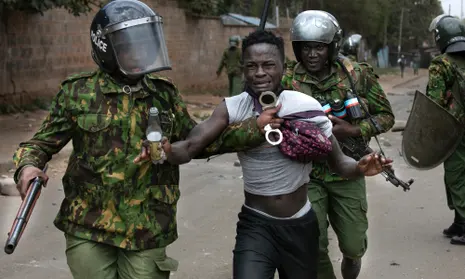
Civil society groups and religious leaders have called for calm and dialogue amid rising tensions. Archbishop Anthony Muheria of Kenya Conference of Catholic Bishops encourages President Ruto and opposition leader Raila Odinga to seek peaceful solutions and roll back tax increases. Civil society’s efforts in advocating nonviolence are essential when political tensions flare up;
International Response and Human Rights Concerns
The international community has closely followed developments in Kenya, voicing its displeasure with police use of excessive force against protesters. Foreign governments and international organizations have called for the respect and protection of human rights and peaceful assembly rights; Kenya’s response will likely affect its relations with international bodies.
Media and Opposition Leaders Feel Pressure
Protests have put media outlets and opposition leaders under immense strain, prompting reports that one TV station affiliated with Azimio La Umoja opposition party had its spokesperson arrested – raising questions of media freedom and government treatment of dissident voices. Furthermore, opposition leaders such as Raila Odinga have been detained as well, which drew further condemnation both domestically and from international observers alike.
Importance of Dialogue and Inclusive Governance
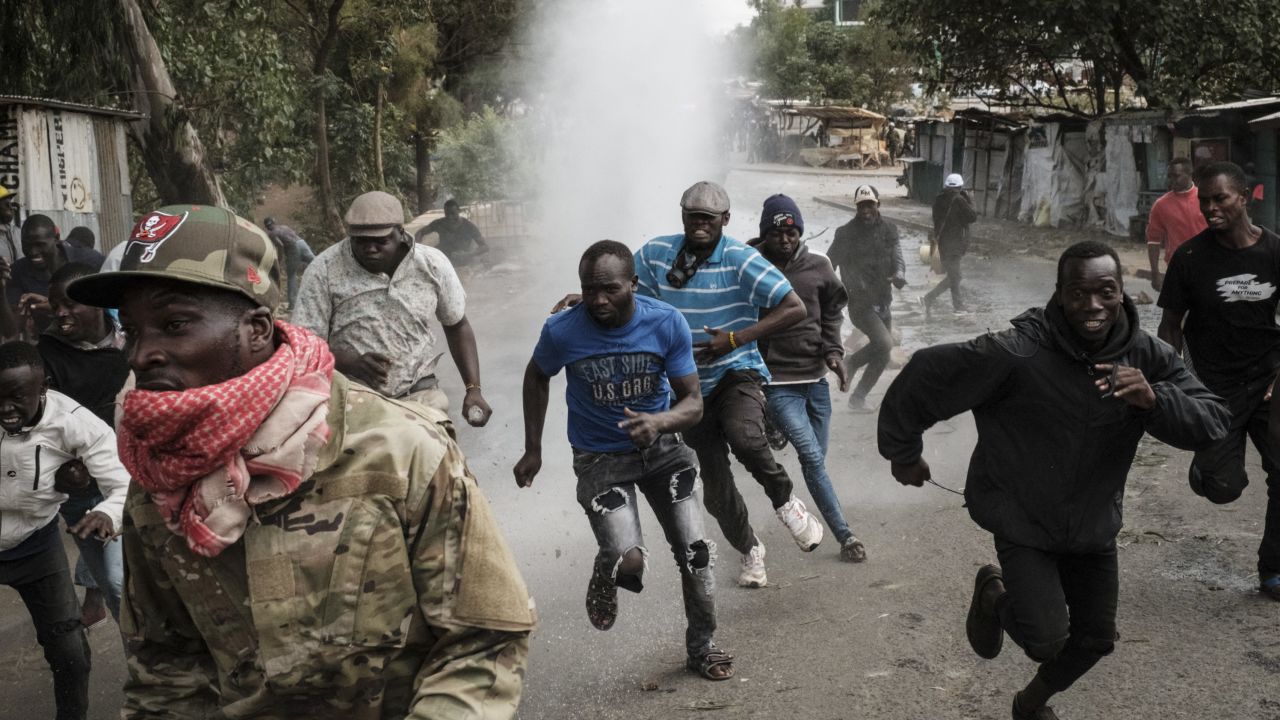
With political unrest at an all-time high, dialogue, and inclusive governance have never been more essential to social stability and harmony. While protests can provide citizens with an outlet to air their grievances, lasting solutions can only be reached through engaging constructively between government and opposition parties – which requires engaging all citizens, regardless of political affiliation, in meaningful conversations that seek lasting solutions to ensure stability and social harmony for all citizens.
Kenya’s Protests and Investment Climate Protracted protests and political unrest have had an indelible mark on Kenya’s international image, dissuading foreign investors who may fear investing in such an unstable environment. Restoring confidence in Kenya’s stability and governance is crucial to economic development and growth.
The Role of the International Community
The international community can play an essential role in supporting peace and stability in Kenya. Diplomatic efforts and pressure placed upon Kenyan authorities to respect human rights and engage in meaningful dialogue with opposition leaders can be crucial in finding an amicable resolution to the crisis. Furthermore, the support provided to civil society groups advocating peaceful protests while upholding democratic principles can be integral to reaching positive results.
Addressing Socio-Economic Challenges

Beyond political concerns, Kenya faces pressing socio-economic problems that require urgent attention from the government. Policy implementation that benefits those most in need – those living on poverty income and vulnerable members – must occur. Education, healthcare, and employment opportunities can help alleviate poverty while simultaneously decreasing causes of discontentment and unrest.
Kenya has faced numerous political crises, most notably following its contentious elections of 2007 and 2017. Learning from these previous crises can provide invaluable insights for managing current tensions and avoiding further violence escalation. Transparent elections, the rule of law observance, and respecting human rights cannot be stressed enough in creating a stable and prosperous Kenya.
With potential risks of escalation looming large, international mediation efforts could provide an avenue toward peaceful resolutions. Neutral mediators could facilitate dialogue between government and opposition leaders while encouraging them to find common ground and negotiate an acceptable compromise solution. Regional organizations and neighboring countries could also be crucial in mediating the crisis.


